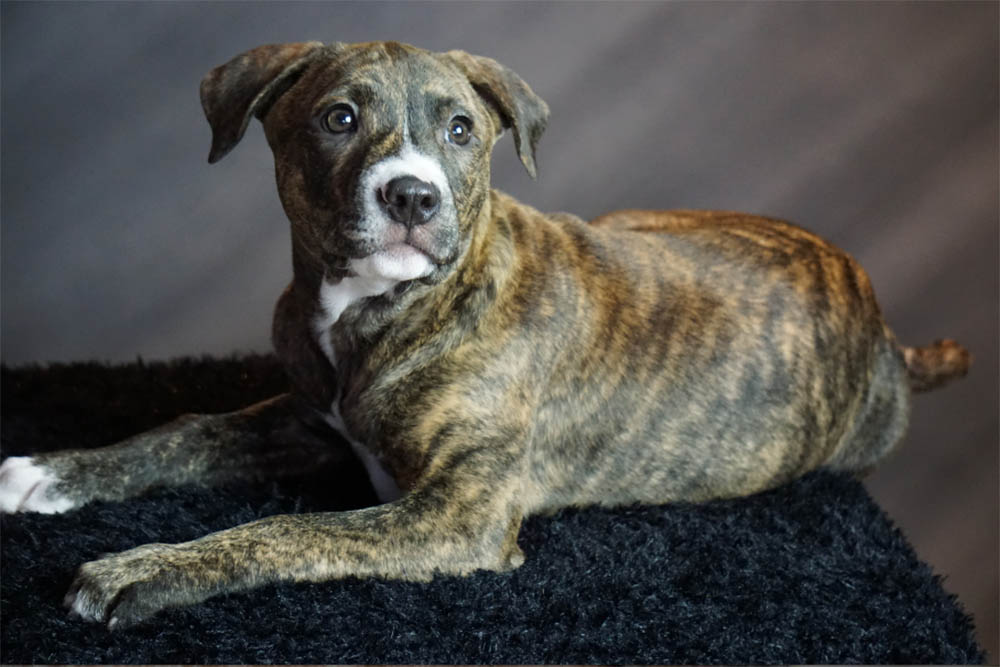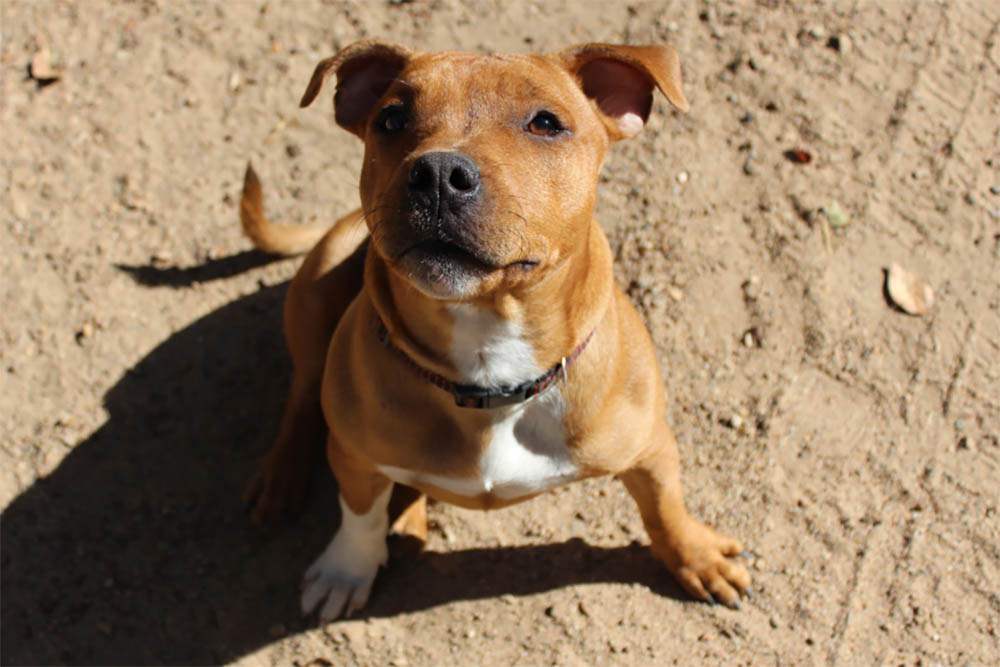
Biting is a natural behavior for puppies and should be expected as they are growing up. They are likely to grow out of this biting behavior as they get older. We go into more detail about the reasons why puppies bite below.
Do not be alarmed if you notice your puppy biting you or objects around your home.
There are many easy methods to reduce and eliminate this behavior. The most important thing is to be firm and consistent.
Puppies are fast learners and if you continually repeat the same instructions it will not take them long to modify the way that they behave.
Should I let my puppy bite me?
There is little problem if you allow your puppy to bite you when they are very young.
Their teeth will not have grown properly and they are unlikely to cause you any harm.
The issue is that it then becomes ingrained in their brains that biting humans is acceptable. Down the road, when they are older and fully grown, this can cause problems and could lead to injuries.
We always advise teaching your puppy from day 1 that biting is not acceptable. Please do not use physical aggression or violence to stop them from exhibiting this behaviour.
If you feel as though you have no choice but to resort to that, contact a professional dog trainer for further advice. There is never a reason to lay your hands on a pet as simple vocal commands will be sufficient.
If you have instructed your dog not to bite using one of the methods below and it does not appear to be working, do not worry. The processes can take time.
If your puppy consistently continues to nip at you, consider placing them in a room behind a baby gate. Leave them here for a little while to calm down and then allow them to interact with you again.
How do I stop my puppy from biting?

There are many methods that you can use to stop your puppy from biting you. The most important part of this process is to remain consistent. This will help your pupp[y to understand that playtime is over and that biting is unacceptable.
The most common method is referred to as bite inhibition. This builds off of the way puppies interact with one another in the litter.
Puppies will bite during play, and this will be accepted for the most part. If one puppy bites another too hard, then the hurt one will let out a little yelp.
This will shock the other puppy and teaches them not to bite so forcefully next time.
Over time, this builds connections in their brains and they learn how to behave. The same thing happens if the puppy clamps down too tightly on their mother’s teats.
To make this method work for you, you will need to allow your puppy to put your hand in their mouth. When and if they bite down too hard, you should loudly say ‘ow’ or let out an audible yelp.
Pull your hand away from your puppy and ignore them for a minute or two. When you return to playing with them, reward them for playing well.
Another easy way to train your puppy is to stop playtime when their teeth touch your skin. You can use this to build up from the bite inhibition method.
Once your puppy has learnt not to bite too forcefully, you can teach them that any skin-to-teeth contact is unacceptable. All you need to do is to stop playtime whenever their teeth touch you. Use chew toys to redirect their attention instead.
If you have tried these methods unsuccessfully, you can purchase a bite deterrent spray. These are foul smelling and tasting sprays that you can coat your hands in.
When your puppy takes your hands into their mouth they will taste the spray.
Over time they will begin to associate human hands with this taste, and will bite you less and less. It is a good idea to involve a chew toy so that they can redirect their attention. Reward them for chewing the toy instead of your hand.
Why does my Staffy puppy bite?
Puppies will bite for a variety of reasons. Dogs do not have hands like humans, and so must find alternate ways to explore and evaluate their surroundings.
They have a fantastic sense of smell, which leads to intrigue. The only way they can get further information is by putting objects in their mouths.
This leads to them biting on a lot of different items around your home. This is similar to how human babies engage with new items.
As puppies play with their littermates you are likely to see them nip one another. If you are not expecting it, the playful bites can seem scary.
They will stop if they go too far and actually hurt one another, so there is nothing to worry about.
If your puppy has been removed from its litter, it may begin to play with you in the same manner. They are likely to give you a little nip if they want attention or they are bored.
Puppies go through a teething period, just like humans. You may notice an increase in the frequency of their bites around this time.
To alleviate the damage to your furniture and self, we recommend giving your puppy a chew toy or 2.
Another cause of puppy bites is due to over excitement. This is particularly seen when you have been playing with them, or there are young children or other puppies around. This will over-stimulate your puppy and they will bite as they are overwhelmed.
Puppies will also bite you if you wave your hands around their face and mouth area.
This indicates to them that your hands are a toy, essentially giving them free rein to bite them. To reduce the chances of this happening, use a chew toy to play with them.
